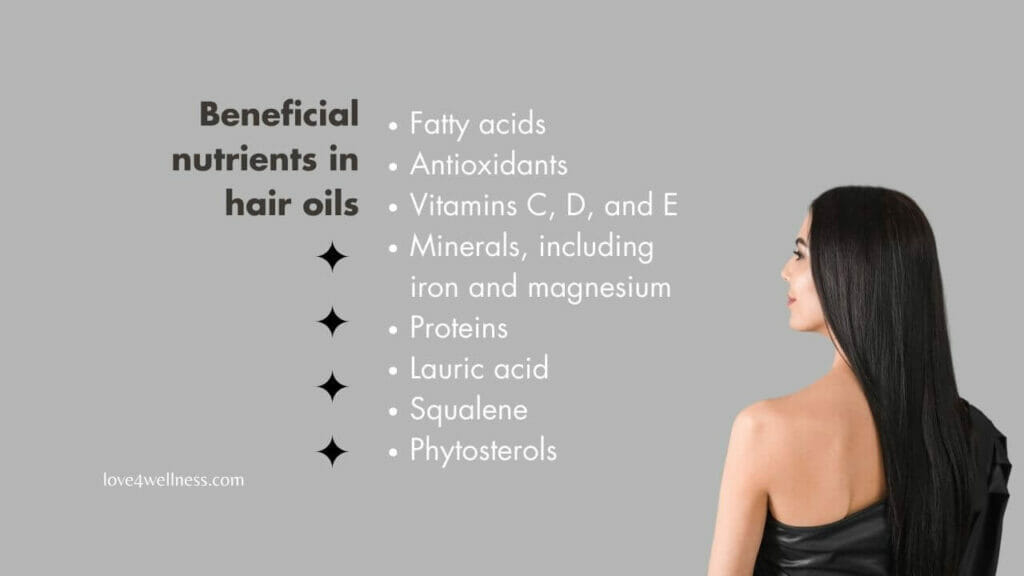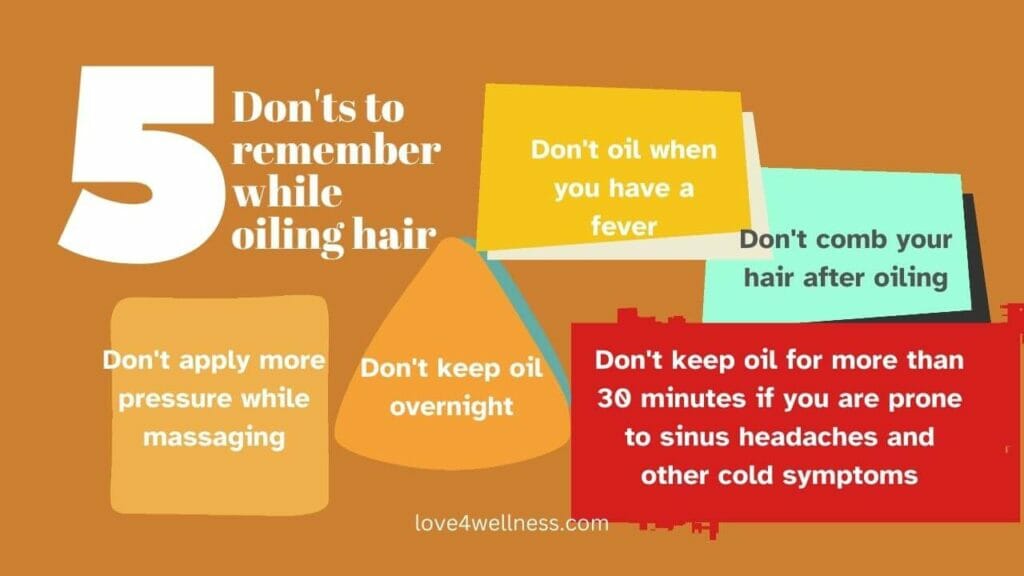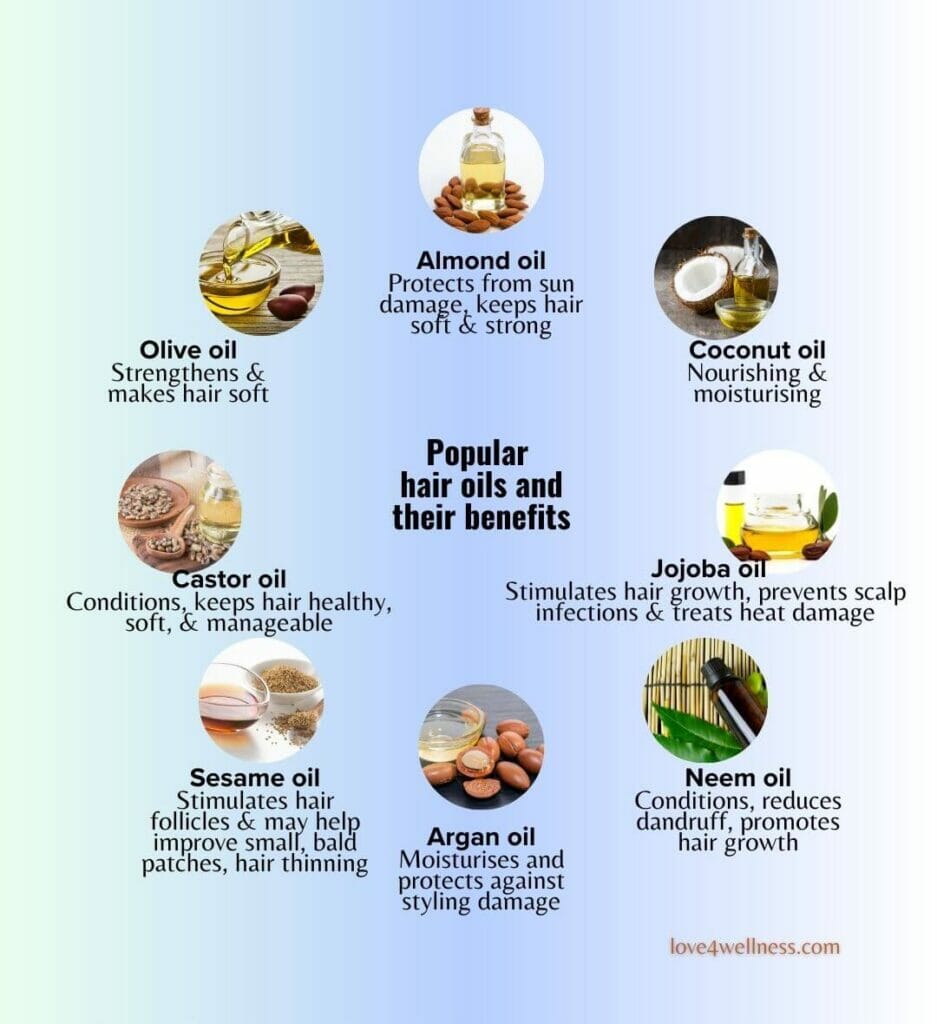Have you ever considered oiling your hair as part of your hair care routine? While it may seem old-fashioned, the benefits of oiling hair have been recognized for centuries. From promoting hair growth to preventing breakage and damage, oiling hair has numerous benefits that can lead to healthier, more lustrous locks. In this article, we’ll explore the benefits of oiling hair and why it should be a part of your hair care routine. So, grab your favourite oil and let’s dive in!
History of using oil on hair in different cultures
The practice of oiling hair has been prevalent in various cultures for centuries. In ancient India, Ayurvedic texts recommended oiling hair as part of a self-care routine. Ancient Egyptians also used a blend of oils to maintain healthy hair. In Japan, women use camellia oil to promote hair growth and prevent split ends. Moroccan women used argan oil to nourish their hair and protect it from the harsh desert environment. Oiling hair remains a popular practice worldwide, and many still use traditional oils for their beneficial properties.
Nutrients in oils beneficial for hair and the scalp
Hair oils contain several essential nutrients that provide numerous benefits to hair health. These nutrients include:
- Fatty acids – Essential fatty acids such as omega-3 and omega-6 found in many hair oils help nourish and strengthen hair strands.
- Vitamins – Vitamin E and vitamin D, commonly found in hair oils, are among the best nutrients to promote hair growth and scalp health.
- Antioxidants – Many hair oils contain antioxidants, such as vitamin E and vitamin C, which protect hair from environmental damage and prevent hair breakage.
- Minerals – Oils like castor oil and coconut oil are loaded with minerals, including magnesium and iron, which help to strengthen hair and prevent hair loss.
- Proteins – Hair oils like argan oil and jojoba oil contain proteins that help repair damaged hair and promote healthy growth.
- Lauric acid: Found in coconut oil, this fatty acid possesses antimicrobial properties that can help to prevent dandruff and other scalp infections. Thanks to applying coconut oil regularly, women in Kerala, India, have dark, lustrous hair.
- Oleic acid: Found in olive oil, this monounsaturated fatty acid (Omega-9) can help to strengthen and moisturize hair.
- Phytosterols: Plant-based compounds that can help to reduce inflammation and promote healthy hair growth.
- Squalene is a lipid that helps moisturize and nourish the hair while protecting it from environmental damage.
Five major benefits of oiling hair
Oiling involves massaging hair and scalp with natural oils, which provide numerous benefits to hair health. The top five benefits of oiling your hair are:
- Nourishment
Oils like coconut, olive, and almond are rich in fatty acids, vitamins, and minerals that nourish hair follicles. These nutrients are necessary for healthy hair growth and help prevent hair breakage, split ends, and thinning.
- Moisturisation
Oils penetrate deep into the shaft of the hair and provide long-lasting moisture. This is especially beneficial for people with dry, brittle hair. In addition, oiling hair before shampoo prevents stripping off the natural oils from the scalp. It also helps restore the natural moisture balance, making hair soft, shiny, and more manageable.
- Improved Scalp Health
Massaging the scalp with oil helps improve blood circulation and reduces dandruff and other scalp conditions like itchiness, flakiness, and dryness. In addition, oils that contain antibacterial and antifungal properties help prevent scalp infections and promote a healthy environment.
- Hair Growth
Massaging oil onto the scalp stimulates hair follicles and increases blood circulation, which promotes healthy hair growth. In addition, castor oil and peppermint oil has been shown to promote hair growth and thicken hair strands.
- Stress Relief
Relieving stress is another excellent benefit of oiling hair. Massaging oil onto the scalp can be a relaxing and stress-relieving experience. It can help release tension and improve mood, positively impacting overall health and well-being. Additionally, certain oils like lavender and rosemary have aromatherapy benefits that can further enhance relaxation and reduce stress levels.
What is the best time to oil your hair? How long should you let it sit on your scalp?
Some use a few drops of light oils, such as coconut or almond oil, to replace hair serums. And let’s be clear, that is not oiling.
Oiling is soaking your hair in a good amount of oil. Doing it twice or at least once a week is best to reap the benefits of oiling.
Though the benefits of oiling hair overnight are widely approved, and the practice of leaving oil overnight is popular, according to Ayurveda, it may cause an imbalance of Doshas in some. Hence, the best time to oil your hair is two hours before bathing. If you are prone to sinus headaches or cold symptoms, allow the oil to soak your hair for not more than 30 minutes and then wash it off with a mild shampoo.
If you wish to oil your toddler’s scalp, leave it for 10-15 minutes.
How to oil hair for the best results and benefits?
Take oil in a bowl and warm it on low flame. Start by applying oil to the scalp, then massage it in gentle circular motions. Work from the top of your head and go down to the neck. Do not apply great pressure. Instead, use your fingertips to massage. After the scalp, apply oil on the hair strands as well. Getting someone to massage your scalp will make it more relaxing and stress-relieving.
Recommended Reads
- 5 DIY Dandruff Home Remedies To Try For Amazing Results
- Five Amla Remedies For Common Health Problems That Actually Work
- Alternanthera sessilis – A Wonderful Medicinal Plant
What are some of the popular hair oils?
Coconut oil and sesame oil are the most recommended hair oils by Ayurveda. The benefits of oiling hair with coconut oil are many, and its nourishing properties are considered extremely good for hair. Both oils are believed to provide therapeutic benefits, including healthy hair.
Other popular massaging hair oils include olive oil, castor oil, argan oil, and sweet almond oil. Neem oil has antibacterial and antifungal properties and gives good results when used for dandruff caused by yeast buildup on the scalp.
Many essential oils, such as rosemary, lavender, peppermint, tea tree oil, etc., may improve hair growth and eliminate various scalp conditions. However, since these are essential oils, mixing a few drops with a carrier oil is important before using them.
How to choose the right oil?
This is going to need some time. Not all of us are made the same way, and so is our hair. In fact, traditional medicine systems such as Ayurveda and TCM work based on the individual, as the systems believe every individual is made of unique constitutions.
So a hair oil that promotes hair growth in one may not show significant results in another. So try using an oil a few times. If it seems to make your hair and scalp healthier, continue, else try another.
Furthermore, hair oils with many useful ingredients, such as Brahmi and Amla, are also available in stores. Do some research and choose the ones that suit you.
Takeaway
Oiling hair is an age-old practice having beneficial effects on hair health. From nourishment and hydration to protecting from everyday damage, promoting hair growth, and making hair softer and healthier, the benefits are incredible and irresistible. So pick a favourite, dim the lights, oil your hair, and relax with lovely music. Here’s to healthy hair!
Images: canva.com



